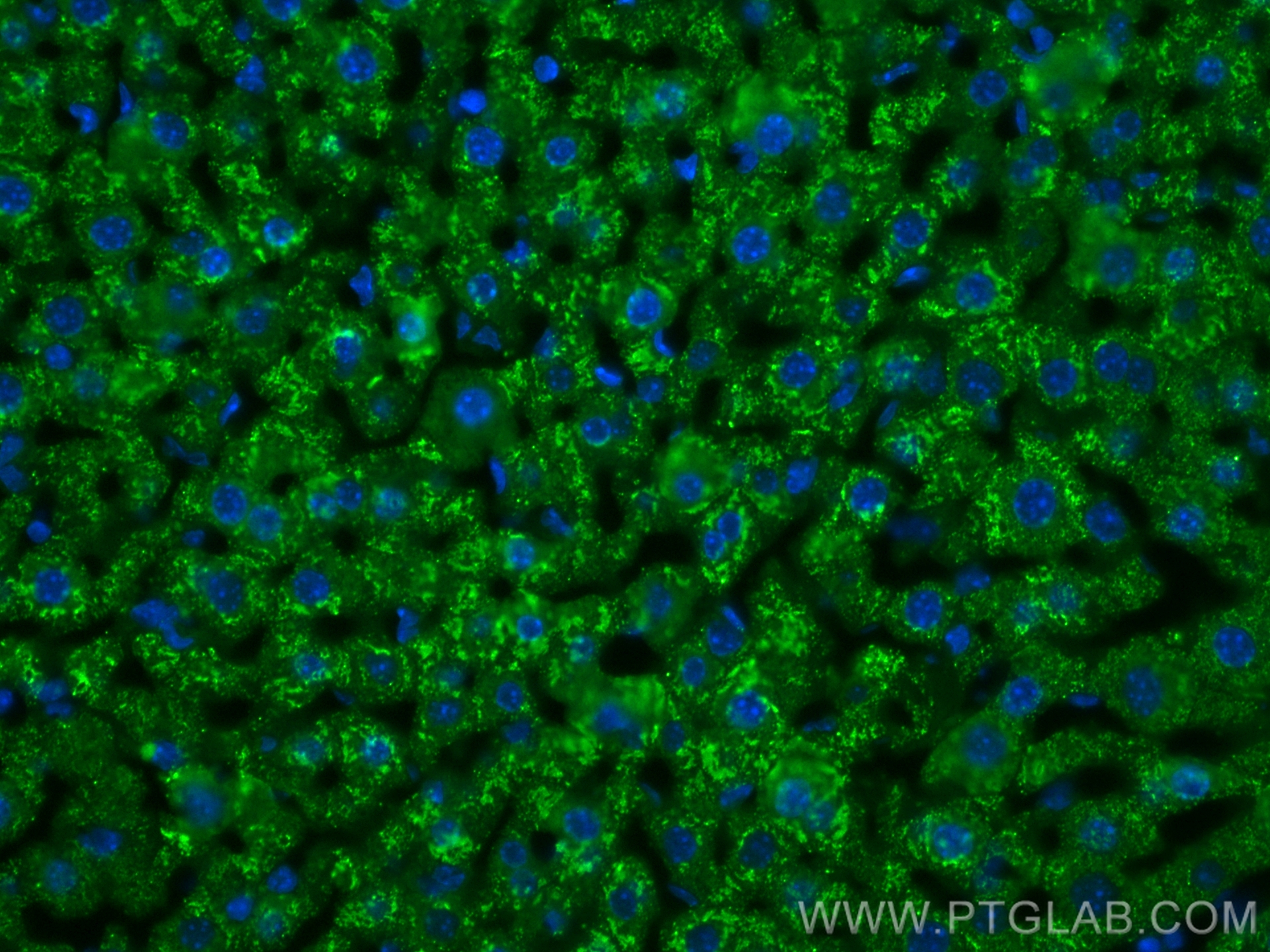验证数据展示
经过测试的应用
| Positive IF-P detected in | mouse liver tissue |
推荐稀释比
| 应用 | 推荐稀释比 |
|---|---|
| Immunofluorescence (IF)-P | IF-P : 1:50-1:500 |
| It is recommended that this reagent should be titrated in each testing system to obtain optimal results. | |
| Sample-dependent, Check data in validation data gallery. | |
产品信息
CL488-10734 targets MGP in IF-P applications and shows reactivity with human, mouse samples.
| 经测试应用 | IF-P Application Description |
| 经测试反应性 | human, mouse |
| 免疫原 |
CatNo: Ag1091 Product name: Recombinant human MGP protein Source: e coli.-derived, PGEX-4T Tag: GST Domain: 1-103 aa of BC005272 Sequence: MKSLILLAILAALAVVTLCYESHESMESYELNPFINRRNANTFISPQQRWRAKVQERIRERSKPVHELNREACDDYRLCERYAMVYGYNAAYNRYFRKRRGAK 种属同源性预测 |
| 宿主/亚型 | Rabbit / IgG |
| 抗体类别 | Polyclonal |
| 产品类型 | Antibody |
| 全称 | matrix Gla protein |
| 别名 | GIG36, matrix Gla protein, MGLAP, MGP, NTI |
| 计算分子量 | 103 aa, 13 kDa |
| GenBank蛋白编号 | BC005272 |
| 基因名称 | MGP |
| Gene ID (NCBI) | 4256 |
| RRID | AB_3672461 |
| 偶联类型 | CoraLite® Plus 488 Fluorescent Dye |
| 最大激发/发射波长 | 493 nm / 522 nm |
| 形式 | Liquid |
| 纯化方式 | Antigen affinity purification |
| UNIPROT ID | P08493 |
| 储存缓冲液 | PBS with 50% glycerol, 0.05% Proclin300, 0.5% BSA, pH 7.3. |
| 储存条件 | Store at -20°C. Avoid exposure to light. Stable for one year after shipment. Aliquoting is unnecessary for -20oC storage. |
背景介绍
Matrix Gla protein (MGP), a vitamin K-dependent protein, is recognized as a calcification inhibitor in vascular tissue. Defects in MGP are the cause of Keutel syndrome (KS), which is an autosomal recessive disorder characterized by abnormal cartilage calcification, peripheral pulmonary stenosis neural hearing loss and midfacial hypoplasia.
实验方案
| Product Specific Protocols | |
|---|---|
| IF protocol for CL Plus 488 MGP antibody CL488-10734 | Download protocol |
| Standard Protocols | |
|---|---|
| Click here to view our Standard Protocols |


